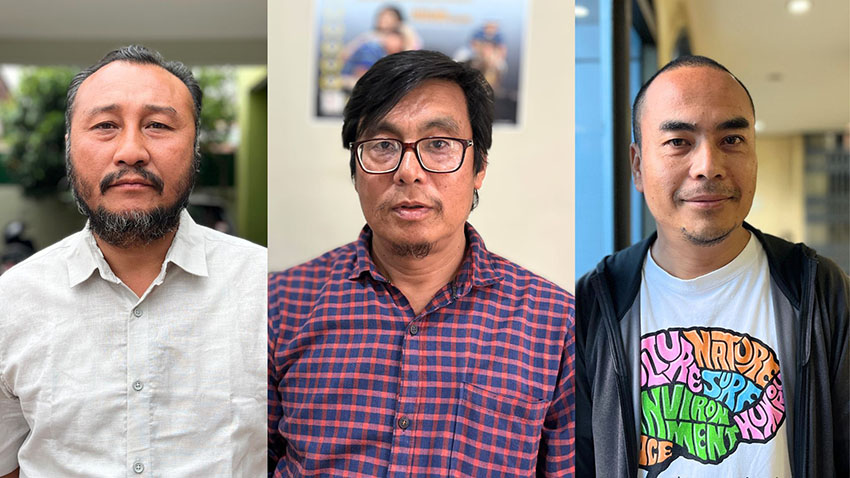A 2-day tri-nation workshop on “Climate Smart Technology to Promote Water and Food Security in South & South East Asia organised by the Humphrey Fellowship – Fulbright Exchange Program, at the Imphal Hotel by Classic on September 2 and 3. The three countries the alumni belonged to are India, Bangladesh and Thailand.
There will be a follow up 2-day workshop in Bangkok on September 6 and 7, according to the program details released by the organisers.
In the Imphal Workshop, in the morning session, which followed a simple but impressive ceremonial welcome function the following persons shared their expertise.
Dr. Petch Manopawitr (Thailand) spoke on “Enhancing water resilience with nature-based solutions”, Dr. Mansee Bal Bhargava (India) spoke on “Decoding and Decentralising the nexus of Water, Farming and Food”, Dr. Rajkumari Sunita Devi (India) spoke on “Watershed Management -best practice for water and livelihood security in Manipur, India”, and Pradip Phanjoubam (India, Editor, IRAP spoke on “Role of Media in Climate Change and its mitigation for water Security”
The session was moderated by Prof. Asha Gupta (India) and the rapporteur was Dr. L Sanjoy Meitei.
In the afternoon session, moderated by Dr. Mansee Bal Bhargava (India), four more experts spoke.
Prof. Indira Sagangthem (India) spoke on “Climate Resilient Agriculture Embracing the 5A Approach of Nature based Solution”, Dr. Khurshid Alam (Bangladesh) however was unable to join because of visa problem, but the paper he was supposed to present is titled “Impact of Climate Change, Slimate Smart Agriculture Adoption on Food Security: Reflections from Climate vulnerable Regions in Bangladesh.
Dr. Alam’s absence was missed but was adequately compensated by two more presentations. Dr. Ohnmar Khaing (Myanmar) spoke on “Climate-Smart Agriculture Interventions for Food and Water Security in Myanmar” and Yumnam Rupachandra (India, editor Impact TV) spoke on “Climate Change and its mitigation for food security.
On the second day, the team made a field tour to the climate vulnerable and fragile, yet extremely scenic Loktak Lake.












